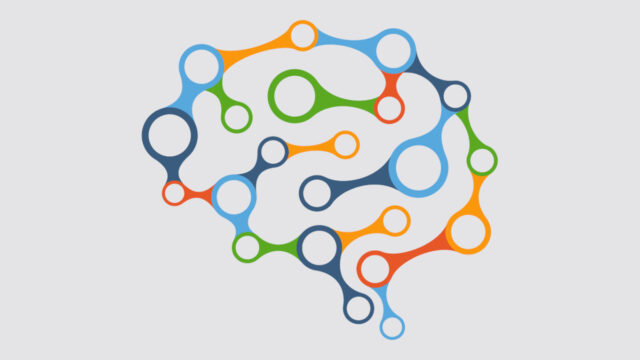
Taking responsibility for complexity (section 3.1.5): Remove the barriers to self-organisation
This article is part of section 3.1 of a series of articles featuring the ODI Working Paper Taking responsibility for complexity: How implementation can achieve results in the face of complex problems.
One priority in enabling a decentralised response to an issue is to tackle barriers and systemic issues that may be preventing actors from adapting to emerging problems and restricting the fruitful production and use of knowledge at different scales. There are likely to be a number of different variables according to the particular policy issue as to what facilitates an ‘enabling environment.’ One example, on agricultural innovation, is as follows: whether there is a good level of innovation in a country is often best explained by certain ‘framework conditions,’ such as ways of working; aspects of culture; the social value placed on entrepreneurship; regulatory and legal frameworks; taxation and incentives; and the banking ethos1. Infrastructure (transport, telecoms, business support) often forms the major constraint to productive innovation. For example, bad roads may stop farmers getting products to market or coming together with fellow farmers.
Actors self-organising to address common problems depends on a number of factors external to the group itself, such as whether there is enabling national legislation giving communities and groups of actors the autonomy to form collaborative institutions and put in place various rules, and whether there is provision and cooperation from government in such arrangements. Working to over constraints in this regard may be a necessary condition in facilitating effective autonomous responses to an issue.
As well as technical and formalised concerns, more deep-rooted issues of power, politics and culture may function as systemic barriers to the production and use of knowledge2. First, power relations can play a big role in shaping actors’ preferences, capabilities and scope for innovation or engaging in collective responses to problems. This relates not only to individual levels of empowerment and self-confidence to initiate change or participate in collective enterprises with others, but also to whether actors have the power to counteract or overcome resistance to change. Deeply embedded structural constraints, such as those to do with gender, caste and class relations, are also likely to play a role in stymieing innovation and adaptive responses to problems.
Second, political and governance arrangements may be decisive in enabling or restraining emergent responses. These will shape the policy response context by affecting whether there is an evidence-based culture, whether elites can critically consume and apply research findings and whether there are likely to be intermediary actors.
Third, discourse can play a role in promoting or stifling the use of knowledge at different levels, either generating demand through the strategic framing of issues or limiting the range and breadth of understanding on a specific phenomenon.
Fourth, social capital is often key to the emergence of adaptive responses, providing networks through which people can self-organise, and represents the basis of trust, collaboration and social learning. Therefore, inter-community characteristics (e.g. homogeneous vs. heterogeneous, dense vs. thin and historically rooted vs. newly formed associational life) and levels of social cohesion can be a crucial parameter constraining or promoting emergent responses.
As well as providing enabling legislation and addressing these other barriers (or at least explicitly recognising them as central barriers to enabling a full response to a complex problem), it could be that public education could have a beneficial effect. For example, in relation to stimulating emergent NRM [natural resource management], a ‘dezombification’ campaign could improve things by making agents capable of learning and conscious that they are; providing education and building awareness about the management of complex systems and reinforcing ideas of complex systems management; and emphasising the need to collaborate in order to achieve common benefits3. This resonates with concepts of popular education – empowering socially or politically marginalised people to take control of their learning and affect social change4.
Next part (section 3.1.6): Supporting networked governance.
See also these related series:
- Exploring the science of complexity
- Planning and strategy development in the face of complexity
- Managing in the face of complexity.
Article source: Jones, H. (2011). Taking responsibility for complexity: How implementation can achieve results in the face of complex problems. Overseas Development Institute (ODI) Working Paper 330. London: ODI. (https://www.odi.org/sites/odi.org.uk/files/odi-assets/publications-opinion-files/6485.pdf). Republished under CC BY-NC-ND 4.0 in accordance with the Terms and conditions of the ODI website.
References and notes:
- Arnold, E. and Bell, M. (2001). ‘Some New Ideas about Research for Development.’ In Danish Ministry of Foreign Affairs Partnership at the Leading Edge: A Danish Vision for Knowledge, Research and Development. Copenhagen: Danish Ministry of Foreign Affairs. ↩
- Jones, N., Romney, D., Jones, H., Walden, D., Mitra, S., Efa, N. and Fish, J. (2009). ‘Conceptual Review on Innovation Systems Approaches and Their Use in Understanding Pro-Poor Innovation in the Renewable Natural Resources Sector.’ Joint ODI-CABI report, prepared for the RIU programme. ↩
- Ruitenbeek, J. and Cartier, C. (2001). ‘The Invisible Wand: Adaptive Co-management as an Emergent Strategy in Complex Bio-economic Systems.’ Occasional Paper 34. Jakarta: CIFOR. ↩
- Freire, P. (1970). Pedagogy of the Oppressed. New York: Continuum. ↩





